HOME | ABOUT US | MEDIA KIT | CONTACT US | INQUIRE
HOME | ABOUT US | MEDIA KIT | CONTACT US | INQUIRE
These executives dedicated their lives to building a better Kansas City, one company at a time.
“Perfection,” it’s been written, “consists not of doing extraordinary things, but doing ordinary things extraordinarily well.” With that in mind, Ingram’s Living Legends series debuted in 1999 to showcase truly legendary figures of Kansas City business in the latter half of the 20th century. People who did things exceedingly well.
As the roster below notes, that first year brought us iconic names like Bloch, Kemper, Nichols and Sunderland, leaders whose vision, deeds—and, let’s face it—money—were all heavily invested in the success of their enterprises here. That success didn’t stop at the office exit: as their companies thrived, so did the broader region.
The same can be said for those to whom we paid tribute every half-decade since. Truly, a Who’s Who of commerce in Kansas City. In most cases, they handed off the baton of business and civic leadership to the generation behind them, members of which populate the 2024 Living Legends lineup.
Just as those recognized before them, these are the risk-takers and innovators, in some cases bold and brash, in some cases cooler and calculating. But in every case, a change-maker. As they move past the concerns of weekly workdays into something, presumably, more relaxing or put the finishing touches on their careers, please join us in saluting them for their contributions. To each of them, our thanks for letting us be a small part of their story.
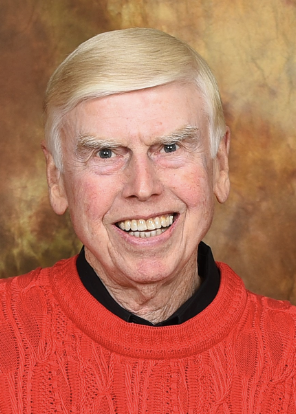 Don Ahnger
Don Ahnger
The success equation for Don Ahnger was both simple and elegant: “Living by God’s Golden Rule,” he says, “as well as working smart have been keys to my long success.” Both of those aspects were on display during his decades of leadership at Midway Ford Truck Center in Kansas City. Not only was it the first Ford Motor Co. truck franchise, it’s a consistent winner of the company’s top performance awards. Ahnger’s value proposition had something to do with that: He was running the show in 1982 when Midway Ford adopted an employee stock-ownership plan. That covers both the notion of treating others as you’d have them treat you and working smart. The thing is, the first ESOP in the U.S. didn’t come along until 1956, and even 25 years later, they still hadn’t caught fire in corporate America. They did at Midway. “I took responsibility for researching ESOPs and helping Midway Ford Truck Center be approved as a very rare Ford dealership ESOP,” he recalls. “Midway’s ESOP helped our dealership become one of Ford’s most successful truck dealerships in the world,” he notes, and proudly declares that its growth continues today. Ahnger is an Illinois native who grew up in the small town of Spring Valley, working evenings at the local drug store while in high school. “I gained a work ethic from my high school years which would carry throughout my active business career,” he says. “I also remained active in my family church (The United Church of Christ) through my high school years.” After graduating from the University of Texas in 1966, he signed up with what was then Ernst & Ernst in its audit department. There, he was actively involved in auditing client businesses, providing business suggestions, and overseeing client feedback. That led to a gig with a Ford dealership in Texas and eventually to Midway. The roadway wasn’t without occasional obstructions. “One of our franchises was lost in the late 1980’s when Volvo discontinued a brand Midway had represented,” he remembers. “We decided to fight for a just legal settlement with Volvo, which we used to expand Midway’s main facility and workforce.” Though retired and spending the bulk of his time out of state, Ahnger makes occasional trips back in his capacity as Midway’s board chairman. He tips his hat for the firm’s continuing success to Trey Meyer, who stepped in after Ahnger’s retirement and has turned it into a billion-dollar revenue enterprise for those employee-owners.
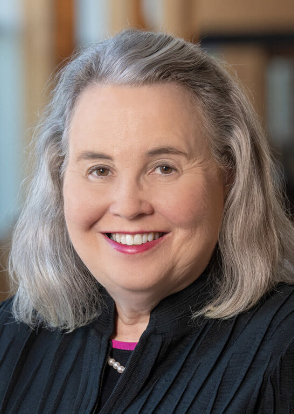 Betty Drees
Betty Drees
For someone who didn’t set out to become an executive-level administrator, Betty Drees sure has relished the challenge. Of course, it helps to be effective in those leadership roles. For 13 years she was dean of the School of Medicine at UMKC, stepping down from that position in 2014. Then, in 2018, the leadership itch presented again, and Drees scratched it as president of the Graduate School for Kansas City’s Stowers Institute for Medical Research. Neither role was about her career ambitions; both came in response to need.
“I don’t know that it was a conscious decision to go into administration,” she says. “It was more a matter of things needed to be done and a desire to be part of the decision-making process to improve systems and outcomes, and that naturally draws you into administration. It was more an organic evolution.”
That was particularly true at UMKC, where she found that when tasks needed doing, other administrators would frequently sound her out. But she also experienced the pull earlier in her career, working at the VA Medical Center and then on the University of Kansas School of Medicine faculty. That’s how she became chief of medicine for the VA when a similar vacancy led her to the dean’s office. When the Stowers graduate school president left town, the request came again, and she felt her skill set complemented the need. “I’ve been doing this for six years, not so much driven by wanting this position and title, but having something to offer to support the mission and fulfill it.” Drees was raised in Wellington, Kan., a wheat-growing county near the Oklahoma border. “I grew up in a supportive family that never told you there was something you couldn’t do,” she says. Most anyone raised in a farming community knows the value of hard work, but Drees also benefitted from the family’s interest in math and science—her grandmother was a teacher, as well—so she gravitated toward medicine. For Drees, overcoming organizational challenges didn’t fall into categories of crises; “I think it was a collection of things,” she says. “In both organizations, what I worked toward was the infrastructure that made it so people could be successful, whether finding financial resources at UMKC or whether it was drafting policies for our initial accreditation at the graduate school at Stowers. It’s always more a matter of thinking, “Where do we need to go? What can we do now to get where we want to be in the future?” that makes things sustainable.”
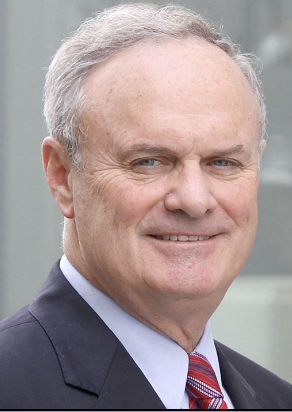 Terry Dunn
Terry Dunn
Terry Dunn a banker? Before he would go on to a long career turning JE Dun Construction into one of America’s biggest contractors, Dunn did indeed log some time in a financial services setting while he was concurrently working on his MBA from UMKC. “I worked in a management training program at Columbia Union National Bank from January 1972 until February 1974,” he remembers. “I served in every department of a $450 million bank. The last six months, I served as the assistant internal auditor. The experience was an outstanding opportunity to gain a greater understanding of banking.” At about the same time, Bill Dunn Sr., Terry’s father, was winding down negotiations to buy out the elder’s brother, Ernie Dunn and his family. “I was offered and accepted a junior officer position at JE Dunn in February 1974, the day after the acquisition was completed,” Dunn says. What followed over the next 40 years is the stuff that entrepreneurial dreams are made of. Entrepreneurship, in fact, was the defining quality he demanded not only of himself but the entire team. As recently as 1990, the year after he became CEO, the company had revenues of $155 million. Even accounting for inflation, revenues when he retired in 2014 had grown more than seven-fold on his watch, and the firm soared from 247th on the list of America’s Top 400 general contractors all the way to No. 12. Nearing the end of its impressive career, disaster struck: The Great Recession. It took a while to drain the work-flow pipelines of contractors, but by 2009, the whole industry was in crisis. “Our company had not faced a major recession until this time,” he says. “Our revenue dropped from $2.8 billion in 2008 to $2 billion in 2009.” Then came the tough choices. “As CEO of JE Dunn, I had to oversee letting go over 100 office and field-management employees in January of 2009,” he says. “I tried to encourage empathy and respect for each person who we let go.” He considers himself fortunate in his early career to have been exposed to an executive class here that’s long been known for collaboration, mentorship and shared guidance. “I learned leadership and team building under many community leaders who were also great mentors,” he says. “As I was learning from these great leaders, I tried to hone my skill set to be a leader, teacher, and mentor to many future leaders in Kansas City.” Nearly a decade after retirement from the firm, he’s pursued a passion for addressing social inequities after founding the non-profit KC Common Good, which will add a new element to his story, his work, and his contributions.
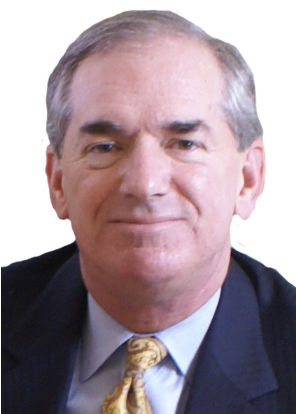 Gary Forsee
Gary Forsee
From Gary Forsee’s perspective, there are no self-made leaders. The experiences and influences of a Missouri upbringing, fraternity leadership in college, and mentors in the professional world all produced qualities central to his own leadership. He’s certainly had plenty of opportunities to test that thesis during the course of his career. His own brand of leadership bears a distinctly Missouri flavor, having been raised in multiple locations around the state, including Moberly, Mexico, the family farm near Fulton, close to grandparents in Cape Girardeau. Rather than a test of his youthful resiliency and ability to adapt, he says, he was able to draw something from experiences in each. “It was great growing up in that environment,” he says. “Boy Scouts, church, paper routes and all we did as kids, becomes part of who you are.” The same goes, he says, with lessons from his days at what is now Missouri University of Science & Technology, where he earned his engineering degree before embarking on a telecommunications career that took him to the zenith of that sector in the U.S. From Southwestern Bell, AT&T and Global One to the CEO’s desk at Sprint, Forsee forged a reputation for navigating organizational challenges with an engineer’s cool composure, studied analysis and relentless focus on collaborations that drove quality and best practices. His work history with various companies exposed him to other successful leaders, including Ron LeMay and Bill Esry at Sprint. Learning from them, Forsee says, “was a very big deal. They had an operating mindset to pay attention to details and ask people to get engaged in everything grounded in the business. It’s very important, with the way business is divided today between sales, service or manufacturing, to learn how the business works.” After being part of a task force working to implement the federal mandate that the Bell telephone system be broken up in the early 1980s, Forsee saw an opportunity to come back home in 1990 with a growing phone company based in Kansas City. Part of that appeal, he says, involved “the entrepreneurial little guy taking on the big guys and taking some risk there. I wanted to help make something work a bit better.” He had plenty of opportunities in that regard, with the industry roiled by advances in fiber optics, consolidations and spinoffs in a constant search for improved efficiencies. “There were half a dozen inflection points and decisions I was involved with where I hope I can look back and say I contributed something there,” he says.
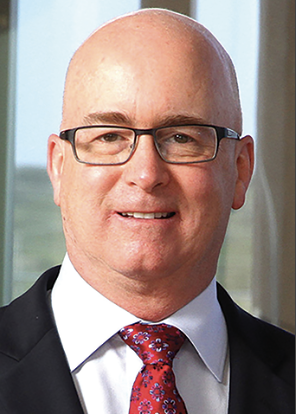 David Gaboury
David Gaboury
When David Gaboury signed on with Terracon Consultants in 1997, it was a regional engineering firm specializing in environmental services. That status would quickly change, especially after Gaboury was named CEO in 2002. He understood that the nation’s fragmented design-services ecosystem was about to enter a consolidation phase, and he positioned the company to capitalize on that with a long-term, aggressive acquisition strategy. But Terracon didn’t buy its way to prominence; it leveraged those acquisitions—pacing new additions roughly every 90 days—with organic growth in its service lines. By 2019, when he turned over the leadership reins, Terracon was a national power: an employee-owned engineering consulting firm with more than 4,500 employees operating from 150 office in all 50 states. “Consistent, prosperous growth of the company,” he said, were points of personal pride in his leadership, as were “personal commitment to everyone going home safe every day based on genuine care and concern for employees and their families. Applying this care and concern to all we do.” His leadership spanned one of the most challenging times the construction-design sector has ever seen: The Great Recession of 2007-09 and its aftermath. Dealing with both the anticipated and actual impacts on the firm’s business, he said, “I learned the importance of strong and caring leadership, the need to be decisive and make the hard decisions to protect and continue to develop your most important resources.” Before Terracon pulled him into its orbit, Gaboury was the COO for Denver-based Woodward Clyde Consultants, which operated in that same engineering space, and had previously worked for CDM Smith in Cambridge, Mass. He earned his degree in civil engineering from the University of Massachusetts at Amherst, then secured a slot at Massachusetts Institute of Technology for his master’s in the same field, and followed that up by completing the advanced management program at Harvard Business School. Assessing his own leadership style, Gaboury said there’s no substitute for authenticity, a message he would impart on rising young executives. “Be authentic,” he said. “Whatever business you are in, you are in the people business. … The most important qualities of an entrepreneur are strong character and persistence. This is true in the context of a start-up entrepreneur or growing an established company. My best advice is to enjoy the journey.”
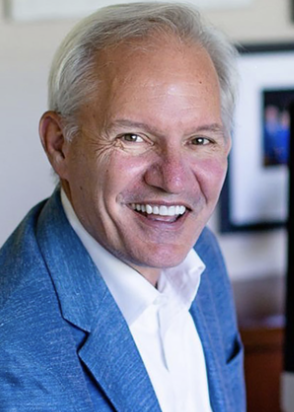 Greg Graves
Greg Graves
There’s a difference, Greg Graves will tell you, between climbing a mountain and plotting a career. The mountaineer sets his sights on a goal before taking that first step. But to reach the pinnacle in business? “Personally, I don’t think careers work like that,” says Graves, who retired as CEO of Burns & McDonnell at the end of 2016. “The best leaders I’ve known usually just set off to work hard at what they are doing and at the same time worked even harder on making themselves get better.” In his own case, that meant time on construction sites while working on his MBA at Rockhurst College. “I was blessed for one to spend my entire career at Burns & Mac, and through multiple random acts of hustle and blessing, I found myself named just the firm’s 6th CEO in 104 years,” Graves says. “I was probably way too young at just 42 when I was announced, but my board was wicked smart and gave me an 18-month transition before I took the helm. Eighteen months is a long time to ‘listen’ and ‘think,’ and my now infamous list of 100 things to make better had me ready to act and to act fast.” The list and the will to act were logical products of an upbringing framed by a special value placed on hard work in his native South Dakota. “No second car, no vacations other than the occasional camping trip, summers on the farm,” Graves says. “My Dad was grounded in the Great Depression, so it should be no surprise that he was always working—always.” It wasn’t long before Graves and his four brothers were working, as well; he started as a neighborhood paper boy at the age of 8. As college approached, he recalls, “I have always loved the search for the ‘why’ of things. How do things work, how is life possible, how does the science of life set things apart? That led me to the SD School of Mines & Technology.” He came on board at Burns & Mac in 1980 and, in 2003, was named CEO. Over the next dozen years, the employee-owned firm tripled its staff and more than quadrupled its billings. He was fortunate, he says, to lead a company based here. “I had spent my entire adult life living here, but basically zero of my work experience was local,” Graves says. “I’d been all around the world but hadn’t really been home. Within days of being named CEO, I started reaching out to local business legends—Henry Bloch, Don Hall Sr., Tom McDonnell, and more. Every person I asked for time said yes; it’s simply built into the fabric here to help each other and to always question what’s best for our town, not just for ourselves.”
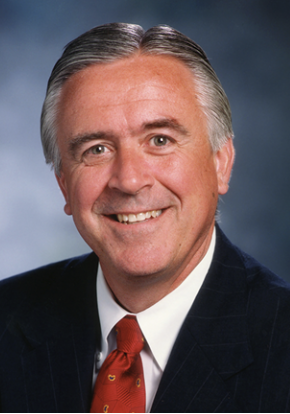 Rich Hastings
Rich Hastings
If you think the hire of a single person in a large health-care organization represents just another cog in the wheel, you probably don’t know about Rich Hastings. Nearly 50 years ago, Saint Luke’s Hospital welcomed him as a new administrative assistant. It would prove to be an organization-changing addition. A decorated Air Force veteran—he earned a Bronze Star in the Vietnam War era—Hastings worked his way up the health-care chain of command, serving as COO at the hospital and eventually CEO, before taking the reins of the parent health-care system in 1996. On his watch, Saint Luke’s was transformed from a mother-ship hospital near the Country Club Plaza into a metro-wide provider of acute-care services, with new hospital facilities built in Johnson County, Lee’s Summit and the Northland. But the system wasn’t just expanding its reach during his tenure; conditions within the system demonstrably improved. In 2003, the main hospital received the prestigious Malcolm Baldridge National Quality Award—the first organization in Kansas City to have earned that distinction. In recognition of his track record as a leader, Modern Healthcare included Hastings on its list of that sector’s 100 Most Powerful People for three years running, 2004-2007. “I’m blessed to have served with many wonderful people throughout our health system,” Hastings said when news of his retirement was announced in 2011. “It’s truly been a dream job, and for that, I’m very grateful.” Hastings was an ardent believer that the long-standing challenges with U.S. health outcomes could be better addressed with a focus on wellness and prevention rather than care after the fact. A contributing cause of the nation’s obesity epidemic—which was already becoming evident 15 years ago—was the move by public school systems to scale back requirements for physical education instruction. By the time he retired, Saint Luke’s accounted for 11 hospitals, with additional clinics and facilities serving 67 counties in northwest Missouri and northeast Kansas, and it had annual revenues of more than $2.9 billion. Hastings’ impact extended well beyond the C-suite at Saint Luke’s; his logbook of community service included time on the boards of the Civic Council of Greater Kansas City, the Greater Kansas City Chamber of Commerce, the board for what is now MRIGlobal, the Harry J. Lloyd Charitable Trust, Midwest Center for Holocaust Education, the Missouri Hospital Association, and the Health Alliance of Mid-America. In 2001, the Jewish Community Relations Bureau/American Jewish Committee honored him with its Human Relations Award.
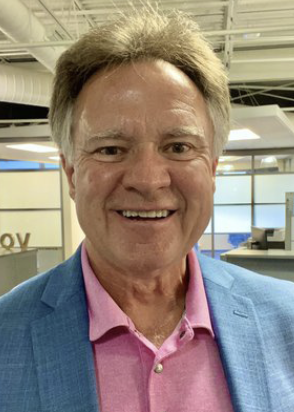 Harry Herington
Harry Herington
Some entrepreneurs and chief executives are born with empathy and people skills; some have to learn those the hard way. Harry Herington’s innate connections to his charges were honed in a uniquely different venue: policing the streets of Midland, Texas, and his native Wichita. Before he founded NIC, Inc., a government website specialist that later sold for $2.3 billion, Herington was a police officer. “During this time, I developed a better understanding of how every life is different and fragile,” he says. “It helped me to become more empathetic and, at the same time, developed a stronger sense of leadership within me. In many of the circumstances, if I did not take the lead, a bad situation could become worse, or someone could be hurt.” He was raised on a farm outside Rosalia, Kan., where he says he learned the value of “looking out for your neighbors and that the character or integrity of a person is defined by how others think of you, not how you might try to portray yourself.” Switching career gears, Herington jumped at the chance to wield tech as a force for more efficient, customer-friendly government services. Over the course of 25 years in that field, he says, “There were several times that leadership was presented with decisions that could make or break the company. NIC was a technology company focused on providing easy access to complex government services. Our mission was to continuously convince a “risk-adverse” government partner to embrace new technologies that were unproven in their industry. Our reputation and the credibility of government agencies relied on us making the right choice as we attempted to push the technology envelope.” Critical to the firm’s success back in 1996 were his efforts to convince peers and government partners that Web-based services were inevitable. “We modified our contracts and began reprogramming all the services,” he says. “Unfortunately, it was not immediately apparent that our existing revenue model would not work with the new technology, and I realized I had effectively eliminated our primary revenue stream. Once I realized the magnitude of the error, I had to own it and lean on our employees and government partners to develop an appropriate alternative.” As a leader, philanthropy was also a valued trait, and Herington combined a personal passion for motorcycle riding with support for law enforcement through Ride4Cops, an organization he founded in 2009 to raise awareness of the dangers police face and to support families of fallen officers. To date, it has donated more than $1 million to the cause.
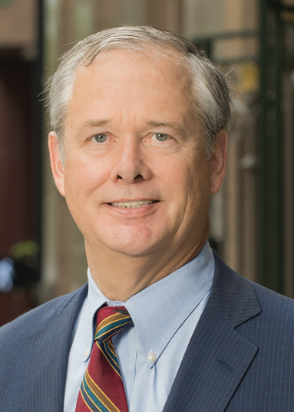 Jonathan Kemper
Jonathan Kemper
He was part of the last generation that would come of age without computers as a daily fact of life, but Jonathan Kemper was quick to seize on their potential when the first Apple model rolled off the production line in 1976, well before his run at Commerce Bank began. He was still working on his MBA from Harvard at the time, and as it happened, that campus was a hotbed of developing theory and practical applications of computer science.“In my business school class, we had several people who ended up being leaders in the future of computer software and e-commerce,” he said, including one who produced a precursor to Excel. For someone raised in a family with deep roots in banking, the implications hit home immediately. “It made me understand how important tech would apply to business,” Kemper says “I could see how productive you could become not just in analysis, but communications. It has revolutionized finance, allowed us to do modeling, and allowed markets to be created. No one could see the full extent in the beginning, but I was watching intently.” He spent several years in New York and Chicago, working as a bank examiner for the Federal Reserve and Citicorp before his parents presented an opportunity to come home, but with a request: Committing to a leadership track. Commerce had just expanded its St. Louis footprint with a major acquisition, so his brother David headed east, and Jonathan settled in here. He became CEO in 1991, and by the time he retired as chairman in 2018, the bank’s assets had increased better than 10-fold, surpassing $22 billion. “Most of that growth was organic, capturing new market share,” Kemper says. “That has been a great addition to our bank in many ways.” He takes some satisfaction in knowing his tenure was not marked by crisis. “Good bankers don’t like surprises,” he says. His father’s decision to expand the bank’s geography made his job easier as Commerce became “a super community bank. When people gave us opportunities, we stuck with the model that worked for us, very customer-oriented and community-oriented.” Going through multiple ups and downs with economic cycles brought its own lessons. “Each time, we know we’re going to come out of it, but in the depths of one, it’s hard to see how,” Kemper says. “It’s hard to have the wisdom to be patient and the capacity to not have to make precipitous moves that end up doing harm in the long term, and trusting the value of your culture. I’ve always believed that success is more about hitting singles and doubles than swinging for the fences.”
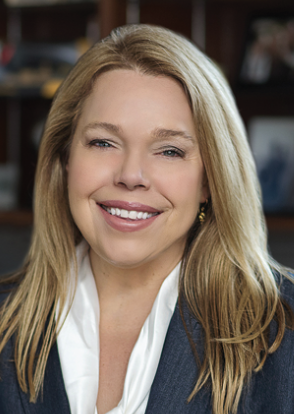 Ann Konecny
Ann Konecny
Ann Konecny is the type of leader who understands that the past—even if it seems distant—determines a great deal about our present. And future. In fact, she’s living that paradigm as a woman who owns a company that specializes in heavy construction equipment, a sector that has yet to fully yield to social imperatives. A Wichita native, she’s the third-generation owner of Foley Equipment Co., carrying on and building on a vision laid out by her grandfather. He was, she says, “a big influence in my life. He founded the company that I now run and was an incredibly talented businessman. He encouraged me to study finance and found examples of successful businesswomen to show me that it was possible. That was pretty forward-thinking for someone born in 1900.” She’s been with the company for 33 years, signing on after earning her dual degree from Wichita State, and has seen her share of challenges. “There were definitely times early on when it was touch and go,” she says. “When I took over the company more than 20 years ago, it was clear that we needed to pivot. I believed that the only way we could drive the change needed was to create the right culture. I wrote our first Mission, Vision, and Principles statement (MVP), which helped us build the culture we have today. While our MVP has been updated, the concepts are largely the same, and they continue to guide us in a rapidly changing world.” About a decade ago, she acquired the Caterpillar rights for the Kansas City region and relocated, managing both this office and her previous base in Wichita. She counts herself among those who have benefitted from the executive community’s reputation for collaboration here. “I have absolutely experienced that approachability and have tremendous gratitude to the leaders who have welcomed me and given me guidance,” she says. “A thriving business community benefits everyone, and I know it is important to pay it forward.” She does precisely that with philanthropic engagement, such as service on the boards of the American Royal and the Greater Kansas City Community Foundation, continuing a record of service she established 30 years ago in Wichita. She’s building a legacy in business leadership as well as giving back. “I hope I will be remembered for leading an excellent and valued team that does important work serving our customers who quite literally improve the world we live in,” she says. “One of the greatest compliments I have ever received was from my past CFO when he retired. He said, ‘Ann is like fertile soil. If you are around her, you will grow.’ In both small and large ways, I hope that is my legacy.”
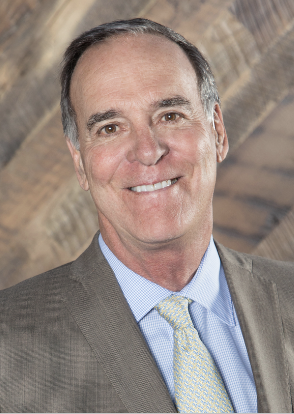 David Lockton
David Lockton
The history of Lockton Companies starts with Jack Lockton’s one-man insurance show operating from a home office and continued with his brother’s leadership to help create the world’s largest private, independent insurance brokerage and benefits consultancy. Viewed from that perspective, you’d be missing an important piece of the foundation by precisely one generation. “My parents raised our family in a modest home in Prairie Village where we had great schools and a stable neighborhood,” David Lockton said in an interview with Ingram’s. “Not everyone in Kansas City starts with that as a foundation for their lives.” Lockton earned a degree in finance from K-State and joined the company his brother had founded. The younger Lockton served as president of the firm starting in 1981 and assumed the CEO’s duties in 1998. Family ownership and the firm’s carefully crafted culture, he says, have produced a remarkable stretch of annual revenue growth, now at 58 consecutive years. Inside that culture, he writes, “Associates are empowered to make decisions that create value for our clients; leadership takes a personal interest in helping our clients’ businesses become more successful; our constituencies—clients, associates, and communities—come first and ahead of short-term shareholder returns, and you get the best from people when you demonstrate consistent values.” So what are they? Simple, he says: Sustainability and promoting a worthy cause, aligning associate and corporate interests to drive behavior, creating a decentralized and entrepreneurial environment, and building an organization around identifying and recruiting excellence. On his watch, the firm went from a small local brokerage to a $3 billion global power, with more than 10,000 associates working in 50 countries. It also leveraged technology to create new consumer and corporate client services to expand the client base and seize emerging opportunities and new market segments. “I’ve been lucky to have my career and my family go hand-in-hand throughout my life, and we have made it a priority to give back to the communities that gave us so much,” Lockton says. “Outside of my work with Lockton Companies, I enjoy mentoring the next generation of leaders, cheering on Kansas City’s world champion sports teams, and traveling with my family.” A lifelong fan of Ewing Kauffman’s brand of entrepreneurship, Lockton was quick to respond in 2019, when energy executive John Sherman was putting together a local investor group that would buy the Kansas City Royals—one of Mr. K’s legacies here—from the Glass family for $1 billion.
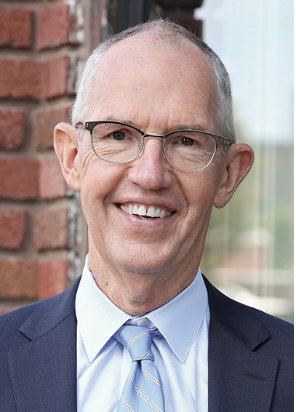 Pat McCown
Pat McCown
So … Start-Up World is a game for young entrepreneurs? Not exclusively. Pat McCown is your proof of that. “I was 47 years old when we started McCownGordon Construction,” he muses. “Four children, with my oldest getting ready to start college and my youngest in middle school. Many thought and said that 47 was pretty old to be starting a new enterprise. It was the perfect time.” The beauty of starting a company in your forties, he says, “is that you bring 20 to 25 years of experience, understanding, business knowledge, wisdom, skills and relationships. And, hopefully, a bit of a recognizable name and reputation.” Teaming with construction veteran Brett Gordon, they found a shared impetus: to build a different kind of company. “Not just a different kind of construction company. A company that was focused on relationships, not just transactions, a company that approached work as partners with our clients, trade contractors, suppliers, and associates within the company. We believed that KC was ready for a different kind of construction company. Fortunately, we were right.” McCown, who retired at the end of 2017, said they also believed Kansas City was ready for another construction company that could perform large-scale, high-end projects. They marketed their services that way, and the community embraced their vision. “We constantly talked about multiple strategic bottom lines, the value of long-term relationships over short-term profits, the opportunity to serve the community, the chance to build a team of associates that were all for one and one for all, and an esprit de corp environment. Little did we know in those early years that it was setting the stage for an employee-owned company.” He traces his own leadership to success to his St. Louis roots, inspired by a World War II veteran father who went back to high school when Pat himself was a student and who infused in him the value of hard work. “The character traits he imparted to me growing up were integrity: do what you say you are going to do. Honesty: above all else, tell the truth even when it is to your own detriment. High work ethic. I was encouraged to start working when I was 12 at a small grocer market. My Dad taught me the joy of helping others and not being fearful of trying new things. My uncle, who was 20 years older than my Dad, was really the one who encouraged me to be entrepreneurial.” Among the defining moments in the company’s history, he says, the most important was moving to 100 percent employee ownership in 2015.
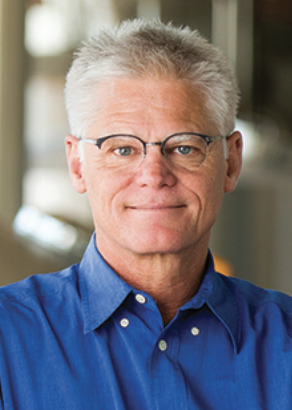 John McDonald
John McDonald
In distribution terms, it wasn’t exactly one giant leap for mankind back in November 1989, when John McDonald hauled that first-ever keg of his Boulevard Pale Ale 3 locks down Southwest Boulevard after that first sale to Ponak’s. In cultural terms, however, the dawn of the craft-brewing industry marked a coming sea change in consumer tastes for hand-crafted ales. Within a few years, beer distributors say, Boulevard products accounted for 10 percent of the tap handles being pulled at bars and restaurants in the Kansas City area. While others trying to emulate his success came and went—in droves—McDonald steadily expanded Boulevard’s product lines to reach broader audiences, bolstered production facilities to increase output and distribution reach across the Midwest, and eventually sold the operation to Belgian brewing giant Duvel-Moortgat in 2013 for a reported $36 million. That’s quite a performance for someone whose own taste in beers ran to American lagers until a transformative trip to Europe in 1984. And “transformative” is exactly the right word: Before that trip, McDonald had been a carpenter with an art-school education. Back home, McDonald lamented the state of beer production in the United States—outside a few specialty brewers largely on the West Coast and Pacific Northwest, there weren’t many choices. And in Kansas City, home to a dozen brewers before Prohibition, there were zero. It was all gone. So it’s hard to overstate what he and his small team of would-be brewers achieved by putting Kansas City back on the fermentation-sciences map. Back in 1989, he said in an interview with Missouri Business Alert, he couldn’t find a banker willing to make a loan on his concept—it had to be funded privately. Food-grade stainless steel equipment, development of yeast strains and cultures and production facilities don’t come cheap. In addition to his passion for craft beer, McDonald has been an advocate for minimizing the industry’s impact on solid-waste disposal. He also founded Ripple Glass, a glass recycling operation to curb the waste problem in the United States that gathered used bottles from more than 100 cities across half a dozen Midwest states and brought it back to Kansas City for recycling. The small brewery he cobbled together 35 years ago grew into one of the nation’s 10 largest craft-beer manufacturers, and today boasts a robust portfolio of 80 varieties, some of which are seasonals only, with others produced year-round.
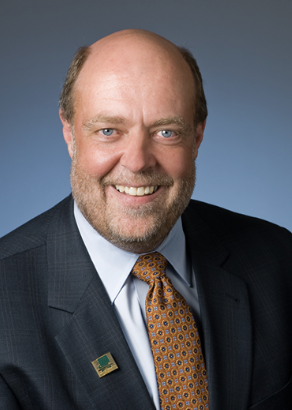 Bob Page
Bob Page
The calendar says retirement can’t be far off, but Bob Page doesn’t appear to be losing so much as a step in transforming health care in the Kansas City region. Just this year, The University of Kansas Health System has pulled Olathe Health into its orbit, creating an enterprise that produced $15 billion in revenues last year. Last month, Page’s team took an additional step over the state line to forge an operational compact with Liberty Hospital. That extends his system’s reach here from the northeast fringe of the metro area to the southwestern corner. But big deals have long been a part of his executive DNA since arriving in Kansas City back in 1996. In fact, he says, “Many decisions over the past 25 years, and the people of our organization, have made the health system who we are today for patients and their families. Three game changers from the early days stand out,” he says: Attainment of an independent hospital authority in 1998, buying what is now the KU Cancer Center back and adding to the stable of top-flight surgeons in cardiology and thoracic surgery, and sharpening the organizational focus on quality nursing. Those achievements continue to pay off for the broader region, he believes. “We are now the largest locally-headquartered health system in our region. We employ more than one-quarter (27 percent) of all health-care workers in Kansas. Our leaders and teams not only work here, but they live here. We are invested in the renaissance Kansas City is experiencing. We believe having a nationally recognized academic health system is part of this renaissance. We put patients and their families first in every decision we make. We’ve done this for 25 years. We also know our growth drives economic impact beyond just the care we provide. Today, we care for patients from all 50 states and nearly 30 countries internationally. We believe creating a sustainable, locally based health system offering seamless care close to home supports our region’s growth.” It hasn’t always been a smooth ride; cutting the cord with the state of Kansas in 1998, when cash flows ebbed to a trickle, was a powerful lesson in the demands of leadership. “Leadership is a team sport,” Page says. “The only reason I have been the CEO for 17 years is because I have the honor and privilege to work with the best team I have ever worked with in my career. I believe in my heart that leaders who believe it is all about them are doomed to failure. Leaders who value teamwork and who surround themselves with folks who are smarter than they are will succeed. There is no place for arrogance or narcissism in leadership.”
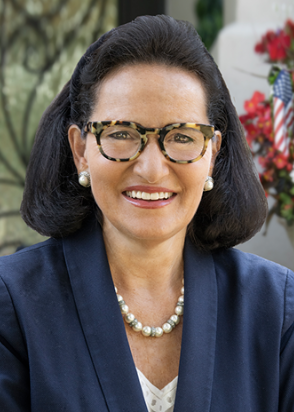 Roshann Parris
Roshann Parris
Two mentors loomed large to help Roshann Parris become the leader she is today, and has been for more than 30 years of leading the highest-profile strategic communications firm in the Kansas City region. One will be well-known to most any member of the business and philanthropic community here: the late Adele Hall, wife of Hallmark chairman emeritus Donald Hall Sr. “She was the most and the best of everything,” says Parris. “She possessed every human trait most of us hope to have but a fraction of. Her kindness, compassion, boundless generosity and intense belief in the goodness of people is an inspiration I carry with me every single day.” The other figure would be harder for most people to discern: It was Stella Parris, her mother, back in her home town of Louisville, Ky. “Mom was raised by her very modest Greek immigrant parents, and never went to college,” Parris says. “Still, she was one of the smartest, most motivated, and most giving women I have ever known. She was my icon for how to juggle life’s balls. Working full-time in our family drug store while raising us, chairing community organizations and still never missing a Girl Scout meeting. Forever present when it mattered most.” Those two examples speak volumes about Parris’ passion to bring about change through her work. When there’s a big development in the Kansas City region, public officials and business executives alike have Parris Communications high on the list of communications consultants. Over the past year or so alone, her team was promoting the new KCI single terminal opening—they spent more than five years on that one project alone—and it handled the ground-breaking for the $4 billion Panasonic Energy plant in De Soto, the largest economic development project in Kansas history. Parris established ties to the nation’s political-power grid while working in the U.S. Senate for six years and finishing her degree. Her firm is a fixture for managing events for the White House and other agencies. She’s made trips to more than 50 countries with former presidents and first ladies, and was the lead international advance manager during all eight years in both the Clinton and Obama administrations. The glittering nature of her clientele, however, has never blinded her to what it means to lead effectively, and she turns to none other than Warren Buffett for guidance in that role. “This lives on our Web site from Warren Buffet,” Parris says. “ ‘In looking for people to hire, you look for three qualities: integrity, intelligence, and energy. And if they don’t have the first, the other two will kill you.’ ”
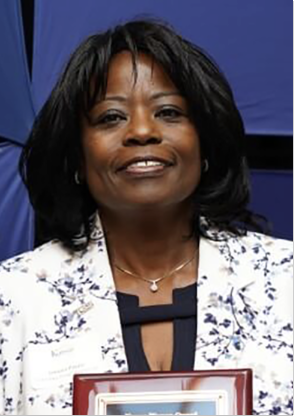 Lenora Payne
Lenora Payne
She could have said the heck with it: A career in telecom services was almost behind her, the kids were grown, and she’d built the place she’d make home in retirement. Then a funny thing happened to Lenora Payne: She became a mid-life entrepreneur. More than 20 years ago, a lunchroom discussion with two other Sprint colleagues sparked the idea for a start-up IT services firm, and in 2005, she took the plunge with Technology Group Solutions, now TGS, which provides IT service and solutions for businesses—hardware, software, security, cloud computing, network solutions, storage, and more. Before TGS, she had worked for GE Capital Information Technology Solutions, MicroAge Computer Center, and other IT resellers in various senior positions that included operations management, employee training, sales support and human resources. She furthered her business skills by taking courses at Northwestern University’s Kellogg School of Management, and tapped into local resources available at the Kauffman FastTrac Growth Venture. On her watch, TGS has soared up the list of the region’s largest women-owned/minority-owned companies lists, surpassing $100 million in revenues at its peak. TGS cracked Ingram’s list of the region’s fastest-growing companies for the first time in 2011, finishing No. 8 overall with 2007-2010 growth of more than 207 percent. Reaching that point was nice. Getting there wasn’t. “The first few years were very, very difficult—starting a company is hard,” she said. “You get that first purchase order and you don’t have the finances to buy the product or deliver the services—if you don’t succeed, you fail.” Compounding that risk was the fact that Kansas City, despite its status as one of the nation’s 30 biggest MSAs, has a tightly knit community of business executives. A prime directive for her team has always been: Meet or exceed the customer expectations, or you will pay the price with reputation. “When we first started, we got some opportunities and proved ourselves, came back again, proved ourselves again, and as we went deeper and wider, became successful.” The lesson in that, she says, is “You can’t give up. You’re never satisfied. In working with our OEM suppliers, we started years ago at the bottom, but we worked our way to the top. Everyone knows that in tech, the way it changes today, you’ve got to be on top or you won’t succeed.”
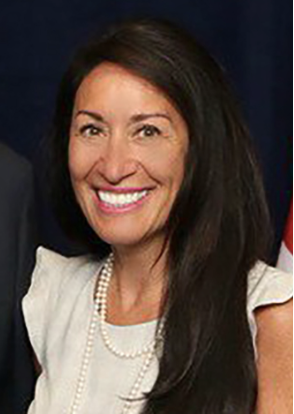 Rosana Privitera-Biondo
Rosana Privitera-Biondo
In 2002, Ingram’s rolled out a new executive recognition program, this one focused on a score of women in leadership roles. At the very top of that list was Rosana Privitera-Biondo, who had been president of family-owned Mark One Electric for eight years. Her placement there was not entirely a function of alphabetic chance—Rosie, as she’s more commonly known, was already demonstrating her ability to lead, both at the corporate level and by virtue of an off-hours calendar packed with functions of multiple civic groups. It’s a lifestyle molded by a core leadership value she embraces: “Work hard, and never give up.” In 1994, Red Privitera stepped back from the top of the company he had founded 20 years earlier and turned the reins over to Rosie and her three brothers. They are not, we should point out, doing light electrical work: “We are frequently chosen to perform highly sophisticated system installations and vital support services,” she writes, “including design/build construction, estimating, engineering, pre-construction coordination, project management and architectural design for difficult commercial, industrial, and government projects.” Her dedication to the family enterprise began considerably earlier than her days in the corner office—she was pushing a broom around the place while still a teenager. In addition to managing one of the city’s biggest electrical contracting firms, her work entails property ownership/investing, following a model that Carl and his wife, Josephine, had created—in fact, they were key figures in the development of Rosana Square shopping center in Johnson County, named for Rosie herself. She and her brothers also stepped in to acquire The Kansas City Star’s former printing press building, that green-glass monster overlooking the southern fringe of the Central Business District; it has since become the focus of the Kansas City Royals’ plans to build a new stadium in Downtown Kansas City. During her career, she has fiercely advocated for improving the lot of women and minorities women and minorities, including a stint as chair of the National Association of Women in Construction. She has also testified on Capitol Hill on issues relating to women in construction and is a past member of the National Women’s Business Council, which advises the White House and Congress, among others, on policy issues affecting women and entrepreneurship. Closer to home, she’s served on the boards of the Economic Development Commission of Kansas City, the Kansas City Area Development Council, and the Kansas City Museum, among others.
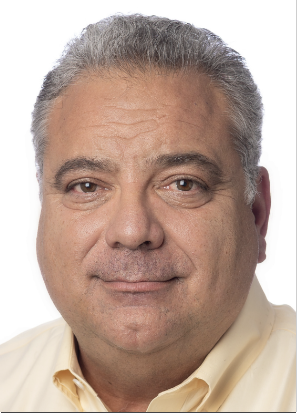 Fred Ross
Fred Ross
Some say the mark of a successful entrepreneur is a profitable exit. Perhaps. But there’s a higher threshold, and Fred Ross has crossed it: a profitable exit with affiliates of the world’s largest alternative asset manager, Blackstone, writing the check. Back in 1996, Ross founded Custom Truck & Equipment to address a niche construction sector need for heavy machines and services. He was one of nine members of the family to launch that enterprise—six brothers and two sisters took the leap with him. It took barely more than a decade for a company with thousands of pieces of gear in its rental portfolio to crash past the $175 million revenue threshold and amass a workforce of more than 300. Ross served as CEO, orchestrating a controlling-interest sale to Blackstone in 2015 and taking on the Custom Truck One Source brand. By 2021, Custom Truck had surpassed $1 billion in revenues and was acquired for nearly $1.5 billion by Nesco Holdings, which adopted Ross’ brand with its listing on the New York Stock Exchange. Ross stayed on board as CEO during the transition, stepping down in March 2023 and expanding his focus to other endeavors. Having survived the construction industry’s meltdown during the Great Recession, Ross offered his take on leadership in an interview with crainebrief.com: “Remain calm and be in constant communication, so your employees feel informed and supported,” he said. “Do not come out of this time doing what you did going into it. Be creative. Ask yourself how you can be a better leader, a better company, and a better partner, and then empower your people to make it happen.” Over the course of his career, Ross deftly switched gears between heavy equipment and water-borne entertainment: He’s also the owner of Iconic Marine Group, building performance v-bottom boats, catamarans, and center-console craft under the labels of Fountain, Donzi and Baja. Of course, building boats means one might also benefit from a place to sell them, as Ross does with his Big Thunder Marine in Lake Ozark, Mo. Those interests are the current extension of an upbringing that included a large cabin on the lake, where he joined siblings and cousins, uncles and aunts, skiing or tubing. And most recently, he’s been behind the development of a massive waterfront project on the lake called Oasis at Lakeport. Early plans for the $350 million project called for restaurants, a Ferris wheel, a water park complete with a retractable roof, and a 400-room Marriott hotel.
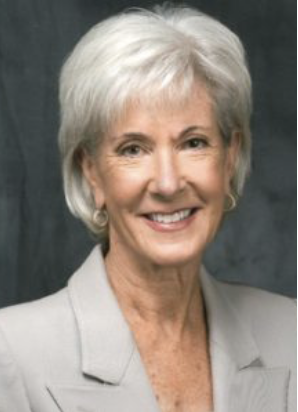 Kathleen Sebelius
Kathleen Sebelius
It’s no stretch to suggest that leadership was a family value for Kathleen Sebelius: Her father served as governor of Ohio, and her father-in-law in the U.S. House representing western Kansas. With examples like that, no one should be surprised that she’d go on to serve as governor in her adopted state, then hit the national scene as secretary of Health and Human Services under Barack Obama. “I learned from my father and father-in-law about key principles for public service,” says Sebelius. “Be guided in key decisions by a moral compass and don’t let polls or tactical deals blur bright lines. Always listen and learn, and try to find ethical and smart people as colleagues and empower them to do their job. Find ways to build a pipeline of young talent; that’s an important legacy.” She applied those values throughout a public-service career that began with her 1986 election to the Kansas House, where she served four terms. Her legislative acumen put her in line to become state insurance commissioner (two terms), and set her up for a successful bit as governor, serving two terms in that role, as well. In the latter role, she believes the biggest contributions she made to the state were “settling school-finance litigation and developing a funding formula that both met the court criteria and was beneficial to students throughout Kansas. We also established a renewable-energy framework which has driven Kansas to become a key producer/user of renewable energy.” Her high visibility as governor put her on a short list of vice presidential candidates for Obama in 2008; instead, she was his pick at HHS. There, she said, her biggest impact came in “leading the passage and implementation of the Affordable care Act, which has provided health benefits to millions of Americans.” Underpinning part her success in Midwestern politics has been the ability to work with the region’s executive community. “I always found a great deal of collaboration and synergy with business leaders in both Kansas and Missouri,” she says. “Top execs wanted/needed an educated committed work force and a friendly business environment. They were eager to help with projects that achieved those goals and were interested in strong communities as well as strong companies. Their voices were powerful in the Capitol and company leaders were generous with their time and resources in the non-profit sector. There was a great partnership on many key initiatives that included public sector, private sector and non-profit leaders working closely together to achieve a shared goal.”
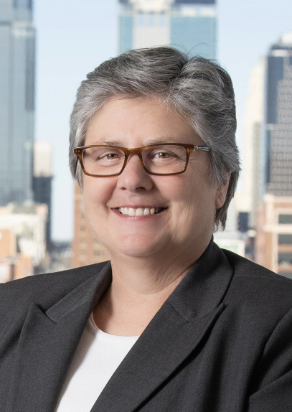 Danette Wilson
Danette Wilson
Far more often than not over the years, women in Kansas City’s executive class have cited experiences at home in their youth as factors that drove them to succeed. And in almost every case, two stand out: examples of strong work ethic, and families that encouraged them to succeed in any venue they chose, without limits based on their gender. The latest demonstration of that: Danette Wilson, who retired as CEO of Blue Cross and Blue Shield of Kansas City in 2019. With that foundation and a degree in business administration from the University of Nebraska, Wilson entered the job market for a couple of years with Mass Mutual before a marketing role opened with Blue KC. “I was fortunate enough to get a job here, and appreciated it because I liked working for an industry leader, in a company full of a lot of great people,” she says. “I loved the sales side of it.” Starting off in large group market sales, she advanced through the ranks and earned the top job in 2014. “I am grateful for the opportunities I had during my career at Blue KC and especially grateful for the talented and committed executive team with whom I worked when I was CEO,” she says. “I surrounded myself with others who were also committed to our members, our community and our work force. I was able to provide a clear vision and a focused approach to accomplishing our goals. With those things in mind, the executive team was able to deliver results enabling us to remain the market leader.” The immediate transition into the C-suite wasn’t a breeze, she recalls. “We were faced with many challenges. Our main goal was to improve the financial results of the company while maintaining a culture focused on our members,” Wilson says. “As a result of our efforts, we achieved the most significant financial turnaround in our company’s history and simultaneously grew our membership.” That turnaround, she said, paved the way for the company to reinvest in market offerings and launch Spira Care, a new type of service combining insurance and care, and it grew from a few hundred members at the first care center in Olathe to nine locations across the Kansas City metro area, providing care access for more than 45,000 Blue KC members. Among her bigger achievements, she says, “I was able to work with others throughout the area to support the continued growth and success in the Kansas City region. The Greater Kansas City Chamber of Commerce, Union Station and the Crime Commission boards all do a tremendous job, and I was honored to be associated with them.”